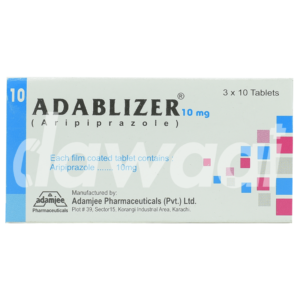Introduction
How To Use
- Diazepam should be taken either with food or without food as advised by your doctor, take it every day at the same time.
- The dosage is determined by your health condition, treatment response, laboratory tests, age and any other medicines you are currently taking.
- Take Diazepam precisely as directed by your doctor.
- Swallow the tablet with water.
- Do not crush, chew or break the tablet.
- Diazepam injection is administered in a proper hospital or clinical setting by a doctor or a nurse.
- Do not discontinue taking Diazepam without first consulting your doctor.
Expert Advice
- Take Diazepam precisely as directed by your doctor.
- Keep Diazepam at room temperature, away from excess heat, direct sunlight and moisture.
- Keep Diazepam out of children’s and pets’ reach.
- Do not use Diazepam after its expiry date has passed.
Primary Uses
Anxiety and muscle spasms
Indications
- Diazepam is a medicine used to treat anxiety disorders. Anxiety disorder symptoms include discomfort, sleeping difficulty, and hands and feet sweating.
- Diazepam is used to treat alcohol withdrawal symptoms such as seizures, anxiety, and hallucinations.
- Diazepam is used to treat skeletal muscular spasms due to muscles or joints inflammation.
- Diazepam is used to treat anxiety and stress symptoms in individuals having endoscopic treatments.
- Diazepam is used to treat tension and anxiety symptoms in individuals having surgical procedures.
- Diazepam is a medicine used to treat seizure disorders.
Side Effects
This medicine is known to produce drowsiness (sleepiness) and light headedness.
Warnings
 Pregnancy
Pregnancy
Diazepam should not be used while pregnant. It has the potential to harm an unborn child. Pregnant females should consult their doctors for further information.
 Lactation
Lactation
Diazepam enters breast milk and can have adverse effects on a nursing baby. It is not recommended during lactation. Lactating females should consult their doctors for further information.
 Driving
Driving
Diazepam use may impair one’s ability to take decisions and react quickly in an emergency. As a result, you should exercise extreme caution when driving vehicles.
 Liver
Liver
In patients having mild or moderate liver damage, Diazepam should be administered with caution. Begin with the lowest dose possible and gradually raise the dose depending on the patient’s reaction. This medicine is not indicated for those who have severe liver disease.
 Kidney
Kidney
People with kidney diseases should consult their doctors before using Diazepam.
 Alcohol
Alcohol
It is not suggested to drink alcohol while taking Diazepam since it can exacerbate adverse effects like dizziness and concentrating difficulties.
 Precautions
Precautions
Inform your doctor if you are hypersensitive to Diazepam or if you have other allergies. Inactive components in this product may trigger allergy reactions or other complications. For more information, consult your doctor. Inform your doctor about your medical history, particularly if you have: a specific muscle disorder (myasthenia gravis), kidney problem, liver problems, glaucoma, breathing/lung problems (like sleep apnea), mood/mental disorders (such as psychosis, depression), or a family or personal history of a substance abuse problem (such as overuse or addiction to alcohol or drugs). Inform your doctor or dentist regarding all of the medicines you consume before undergoing surgery (including prescription, nonprescription and herbal medicines). Diazepam’s adverse effects, particularly impaired coordination and drowsiness, may be more severe in older people. In the elderly, it may have the reverse effect, causing symptoms such as mood/mental changes, sleeping issues, or hallucinations. Coordination problems, fatigue, and sleeping issues can all raise the risk of falling. Diazepam may not provide anxiety relief in children. In children, it may exert an opposite impact, eliciting symptoms such as shaking, agitation or hallucinations.
Contraindications
- Not indicated in those who are allergic to Diazepam.
- In patients with a narrow-angle glaucoma history, Diazepam is not indicated.
- Diazepam should not be used in people with myasthenia gravis because of the higher risk of major side effects.
FAQS
What are the uses of Diazepam?
This medication is used for treatment of seizures, alcohol withdrawal symptoms, anxiety, muscle spasms, and for sedation before medical procedures. Make sure not to overuse this medicine as it may lead to addiction.
How to store Diazepam?
Please store this medicine at room temperature (18-25 Celsius). Keep medicine away from excessive light, moisture, and children. Please do not flush medicines down the toilet. Please read the leaflet provided with the medicine for further storage guidance.
What are the precautions for taking Diazepam?
• You may feel drowsy therefore do not do work requiring alertness e.g. driving immediately after taking this medicine
Does Diazepam have any effect on pregnancy and lactation?
This medicine should not be used during pregnancy and in lactating women.
Disclaimer
Dawaai’s intention is to make sure that it’s consumers get information that is accurate, reviewed by an expert and error-free. However, the information mentioned here should not be used as a replacement for the advice of a qualified physician. The information given here is for informational purposes only, which may not cover all possible precautions, side effects, contraindications or drug interactions. Consult your doctor and discuss your queries related to any medicine or disease.






Reviews
There are no reviews yet.